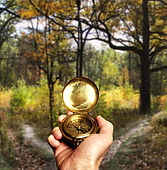
Interpreting is...
a series of moment-to-moment decisions made
before, during, and after every interpreted communication event.
Self-Directed Skill Development
One of the wonderful characteristics of interpreting is that it is a practice profession. That is, just like doctors, counselors, and teachers, we perpetually improve and refine our craft.
Sometimes it can be difficult to know where to go or what to do to further develop our skills.
This page offers some activities and resources for students and working interpreters as
life-long learners. Feel free to adapt any activities already listed here to better fit your
needs, and please send along any more resources and ideas you feel have benefitted
your growth that you would like to share!
(This is a new page, and I would love your contributions!)


DIY Residency:
Click here to download an Activity Log
Students graduating from interpreter preparation programs quickly discover that they are not yet ready to interpret "out in the real world." This is hardly surprising since the skills, theory, and ethics they have learned about cannot be internalized and exercised without many years of experience and reflective practice.
Right now our interpreter education programs are far too short to develop highly qualified interpreters upon graduation, and unlike other practice professions, there are few programs available to help students "bridge the gap" in a formal manner the way medical students do with their residencies.
Along with regularly attending events in the Deaf and interpreting communities, seeking out volunteer interpreting experiences, and committing to a mentor-mentee relationship, novice interpreters might like to create their own "Do-It-Yourself" residency-type training.
What this might look like is holding down a full-time job (other than interpreting) to cover life expenses, and then committing to at least 15 hours of additional work every week focused on developing cultural, linguistic, and interpreting skills intentionally and consistently. New interpreters, I recommend you log your hours in a chart to help yourself see the time you are investing to your growth, and perhaps pair up with a fellow graduate to help each other with accountability. Here is an example chart: Activity Log.
The resources and activities below offer activities that some interpreters have found beneficial in their own professional development. Most include some kind of writing activity, so I encourage you to get a three-ring binder to create a portfolio of your residency. This will support your learning, and it will also serve as a great resource to share with your current and future mentor(s) so they can see a bit of your process and better support your growth.
A few resources in the Deaf and Interpreting Communities:
-
Online Training Opportunity for Deaf Interpreters: http://truebizasl.com/interpreting-courses/dito/
-
Specialty training for interpreting in Mental Health Settings: www.mhit.org (https://www.indemandinterpreting.com/asl/mental-health-interpreter-training-mhit-pivotal-training-mental-health-interpreters/)
-
Interpreting in Courts and other Legal Settings: www.najit.org
-
Local RID and NAD chapters -- be sure to attend their board meetings!!
Recommended Books
-
Grammar, Gesture, and Meaning
(Liddell, 2003)
http://www.betterworldbooks.com/Grammar-2c-Gesture-2c-and-Meaning-H0.aspx?SearchTerm=Grammar%2c+Gesture%2c+and+Meaning -
That's Not What I Meant!
(Tannen, 2011)
http://www.betterworldbooks.com/that-s-not-what-i-meant-id-9780345340900.aspx
-
It's Not What You Sign, It's How You Sign It
(Hoza, 2007)
http://www.betterworldbooks.com/it-s-not-what-you-sign-it-s-how-you-sign-it-politeness-in-american-sign-language-id-9781563683527.aspx
-
Redefining the Role of the Community Interpreter: The Concept of Role-space (Llewellyn-Jones&Lee)
https://www.amazon.com/Redefining-Role-Community-Interpreter-Role-space/dp/0992993601/ref=sr_1_1?ie=UTF8&qid=1497315764&sr=8-1&keywords=Redefining+the+Role+of+the+Community+Interpreter%3A+The+Concept+of+Role-space




Professional Development Activities:
Always log your activities so that you can track how much time you are truly putting into your professional development, and continually grow more efficient in your learning:
Click here to download a sample activity log.
Activities for a DIY Residency:
-
The National Consortium of Interpreter Education Centers is a great resource for interpreters of all levels, and its website has a number of beneficial skill development activities (language learning and interpreting) at no cost:
http://www.interpretereducation.org/aspiring-interpreter/mentorship/mentoring-toolkit/activities/
-
NCIEC has also compiled dozens of insightful articles about interpreting and interpreter education. Many of the articles include skill development activities (If the article does not have an explicitly described activity, you can develop one on your own based on the article information).
http://www.interpretereducation.org/aspiring-interpreter/mentorship/mentoring-toolkit/articles/

